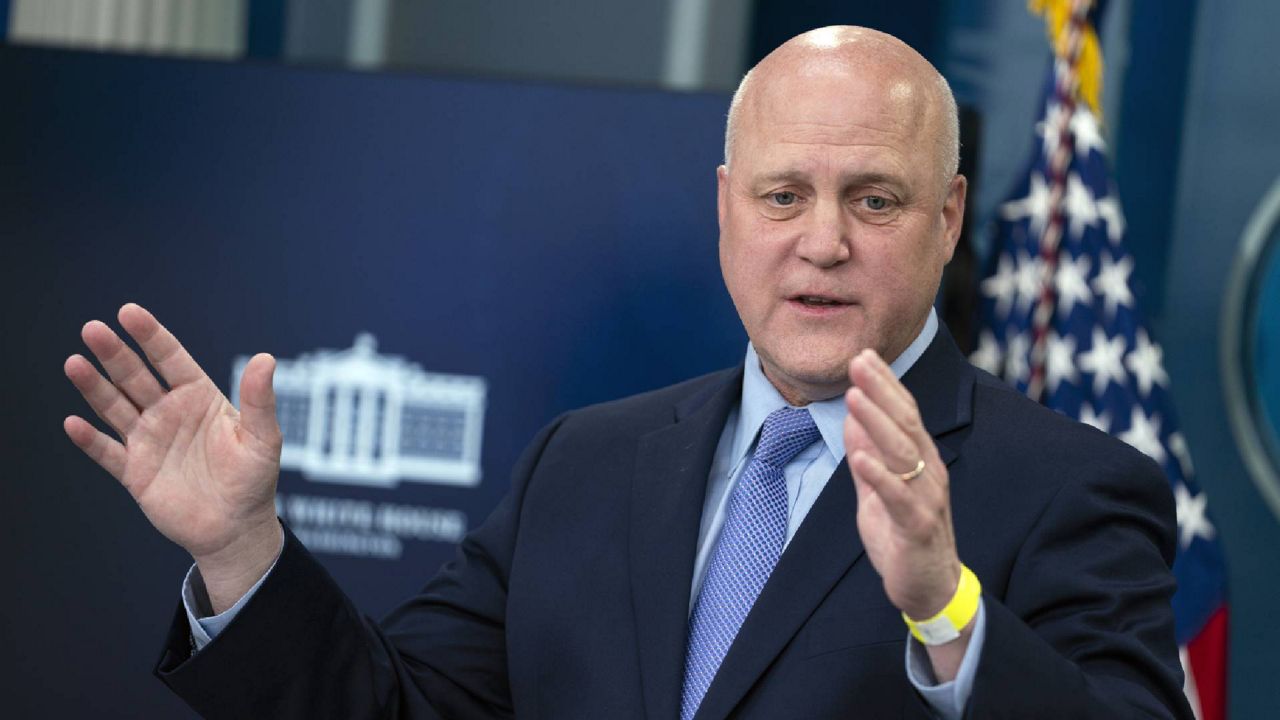President Joe Biden’s coordinator for the $1.2 trillion infrastructure law said Tuesday that implementation of the bipartisan legislation is “not a race” but a careful and calculated dispensing of funds over the next several years, in coordination with both federal agencies and state and local leaders.
“This infrastructure work, in general, is not a one-time economic stimulus. It is not a race to see how many ribbons we can cut before the end of the year,” former New Orleans mayor Mitch Landrieu told reporters at the White House.
“Doing this is going to require balance. It's going to require order. We are definitely going to go fast, but we are not in a hurry, and we are going to get it right.”
As infrastructure implementation coordinator, Landrieu leads the task force of top federal officials and cabinet members overseeing the two-month-old law, which includes funding for projects such as broadband internet access, clean water, roads, bridges and competitive grants, much of it available throughout the next five years.
“My name is Mitch,” he said, introducing himself in the briefing room. “Let me tell you: every week now is going to be infrastructure week, except the difference is we’re actually going to build stuff.”
President Biden is expected to join Landrieu for the task force’s seventh meeting on Thursday, he announced. Biden officially signed the bill into law a little over two months ago in mid-November, and the task force has met six times since.
In the meantime, Landrieu said he has personally spoken with 40 governors and made contact with staff for the rest, along with “hundreds” of other elected officials. The Biden administration has also asked states to implement their own infrastructure coordinators to oversee projects.
“Most of the building will actually be done by the states, by the cities, by the counties, by the tribal leaders,” Landrieu said Tuesday.
Last week, the White House announced one of the first major rollouts of infrastructure funds with a $26 billion effort to repair nearly 15,000 bridges around the country.
And other programs are already available to states for work this year, including nearly $53 billion for highway improvements for 2022 alone.
“Depending how quickly states move, I think we anticipate we will start to see some contracts being awarded and hopefully shovels in the ground later this year,” said Deputy Infrastructure Implementation Coordinator Samantha Silverberg in a call with reporters Tuesday.
“We know that this is going to be a long term transformation,” she added. “Infrastructure, by its nature, is something that takes many years to see through to completion, and so much of our work here is to look to how we embed this oversight and best practices.”
Landrieu is serving in an oversight role similar to one Biden took on as vice president when he coordinated the rollout of the economic stimulus under former president Barack Obama, earning the nickname “Sheriff Joe.”
The former mayor said Tuesday that he also recently spoke with the inspectors general of various federal agencies — the watchdog officials who investigate governmental processes, programs and wrongdoing.
“The federal government must undertake this work in a manner that is deserving of the public's trust,” he said. “So we're gonna lean forward. Stewardship of public dollars is a high priority.”
Landrieu noted that his time serving New Orleans partly helped shape him for the federal role and its need for bipartisanship.
“We have gotten beaten to death by Katrina, Rita, Ike, Gustav, the national recession, the BP oil spill and a bucket load of other stuff. We always wonder when the locusts are coming,” he said. “There are going to be some differences, but at the end of the day, there really is common ground.”



